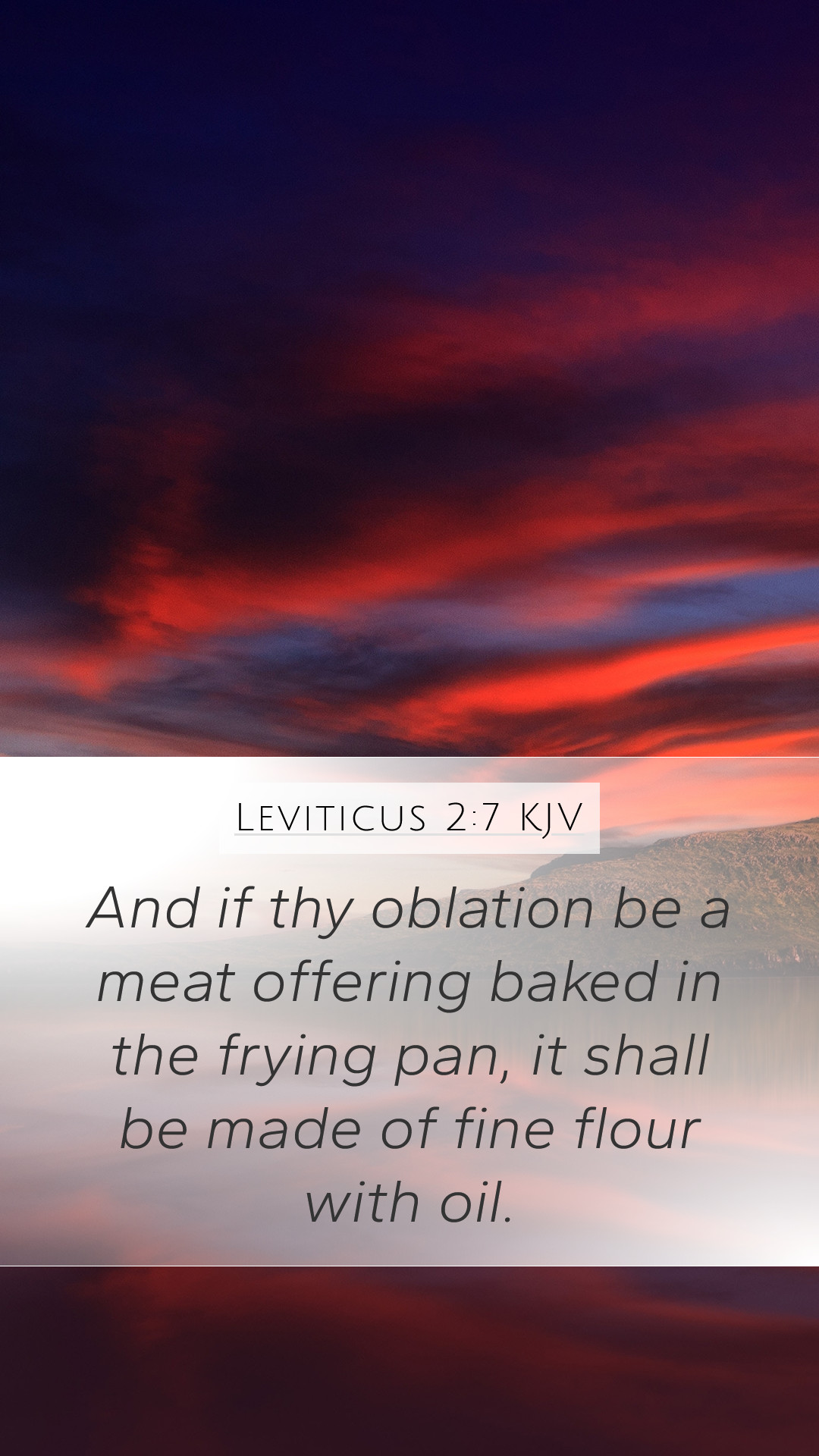Understanding Leviticus 2:7
Leviticus 2:7 reads as follows: "And if thy oblation be a meat offering baked in the oven, it shall be unleavened cakes of fine flour mingled with oil, or unleavened wafers anointed with oil." This verse discusses the regulations surrounding non-animal offerings, highlighting the significance and proper preparation of these offerings in the ancient Israelite context.
Overview of the Context
The Book of Leviticus focuses on laws and regulations intended to guide the Israelites in their worship and conduct. Leviticus 2 presents the meal offering, a form of tribute that does not involve animal sacrifice but instead consists of grain products. This offering is crucial as it expresses the people's gratitude to God and their dependence on His provision.
Interpretation and Commentary
Delving into the interpretations by noted commentators:
- Matthew Henry: Henry emphasizes the importance of the meal offering as a symbol of acknowledgment of God's provision. He notes that the unleavened nature of the cakes represents purity and holiness, signifying that offerings to God must be untainted by sin.
- Albert Barnes: Barnes highlights the significance of oil in these offerings, correlating it to the Spirit of God. The presence of oil signifies an anointing that is essential for any acceptable offering. He teaches that just as the oil enhances the offering, the power of the Holy Spirit enhances the lives of believers.
- Adam Clarke: Clarke provides an interesting linguistic analysis of the terms used, noting that ‘meat offering’ refers to food as a tribute. He sheds light on the distinction made between unleavened and leavened offerings, underscoring that leaven often symbolizes sin in Scripture.
Theological Implications
Understanding this verse's implications fosters a deeper engagement with Bible verse meanings and interpretations:
- The symbolism of unleavened bread reflects purity and the sinless nature necessary for approaching God.
- Grain offerings provide the opportunity for worshipers to express gratitude beyond animal sacrifices, showcasing the comprehensive approach to worship in ancient Israel.
- Oil's significance can lead to a broader understanding of the role of the Holy Spirit in the believer's life today.
Practical Applications
As we consider the applications of Leviticus 2:7, individuals can reflect on:
- How to bring offerings of gratitude in daily life—possibly through acts of service and kindness.
- The importance of maintaining purity in our offerings to God, symbolized through striving to live a sin-free life.
- Seeing the connection between the ancient practices and current spiritual disciplines, bridging historical practices with contemporary faith expressions.
Related Bible Cross References
- Exodus 30:23-25: Discusses the preparation of holy anointing oil.
- Numbers 28:5: Records the requirements for daily grain offerings.
- Matthew 5:13-16: Refers to the Christian's role in being a steward of God's grace, illuminating the importance of pure offerings.
Conclusion
Leviticus 2:7 provides rich insights into the nature of offerings and the significance of presenting one’s best to God. By understanding this verse through various commentaries and its applications, one can enhance their Bible study insights and engage in more meaningful Bible study groups or online Bible study sessions.
For those seeking to grasp the importance of biblical exegesis or looking to deepen their comprehension of specific verses, Leviticus 2:7 serves as a profound reminder of our relationship with God, our worship, and the intention behind our offerings.


